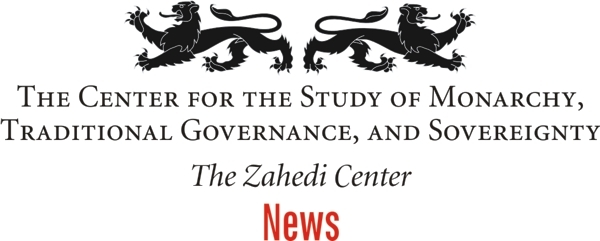|
May 18, 2018 Defining
Sovereignty in an Age of Globalism Analysis. By Gregory R. Copley, Editor, GIS/Defense & Foreign Affairs. Egyptian President Anwar as-Sadat famously commanded his generals in the planning sessions leading up to the October 1973 war to speak in English, as the language was, he is alleged to have said, more precise than Arabic, and precision was needed at that critical phase of war preparations. The story may be apocryphal, but the lesson was not.
How
can we expect our audience to understand our message if we have not thought
consciously of the meaning of each word we use?
Even
the English language is replete with ambiguity, because time and colloquial
usage have a way of evolving the meaning of a word. We consistently use words
gratuitously until questioned as to our intent behind the word. Equally, concepts cannot be defined precisely, nor goals set with any meaning, unless our language is clear, not only to us, but to our audience. I was challenged on this recently when asked, as I repeated my emphasis on the primacy of prestige in the exercise of strategic authority: Did I not just mean “image”? No, I did not.1 But the question showed how dramatically our communications could be misunderstood, either as to substance or as to priority. It has become equally clear that there is a vast discrepancy in the interpretation of the word “sovereignty”. And yet, in his inaugural address to the United Nations General Assembly, on September 19, 2017, US Pres. Donald Trump invoked the word 19 times. The year before, in his final speech to the UN General Assembly, outgoing US Pres. Barack Obama used his speech to essentially speak against sovereignty. And yet, as my questioning has revealed, few people — and particularly few in the US — comprehend the actual meaning of the term, let alone the nuance of the concept. Online dictionaries fail to give the full import of the word, sovereignty, and its underlying concepts, and yet the word is at the heart of the present crisis in many societies around the world, and in the way in which the new global pattern of power alignments is being drawn. The Shorter Oxford English Dictionary (OED) of 1933 is more helpful, and notes:
Sovereignty also clearly relates to an individual, a “sovereign” (a word with origins or links to the 13th Century French souverein [later souverain] to denote a supreme leader), or a form of ultimate excellence: a “sovereign remedy”, for example (quite apart from references to the coin designated as a sovereign). In current strategic parlance, we could probably agree that sovereignty meets aspects of the third and fourth OED definitions: A territory existing as an independent state, and with absolute and independent authority. But there is now more to it than that, even before the question of the authority of a sovereign as a leader is defined. And that definition begs many qualifications: Can a state declare itself sovereign, or is that sovereignty always subject to the acceptance of other sovereign entities? And, if all sovereignty can be challenged, can it ever be described as “absolute” or with “independent authority”? In other words, is there ever a situation where sovereignty is not qualified or tempered? And must a sovereign territory fit the Westphalian definition of a nation-state? And if sovereignty is qualified, can it then have “absolute and independent authority”, such as the case of confederal or federal states within a greater union? The current urban-globalist view is that sovereignty equates to nationalism, which is perceived as the enemy of global governance. Significantly, while “global governance” is postulated as the province of the United Nations, it is significant that the UN was conceived in 1945 to define and protect nation-states as Westphalian-style sovereign entities. So we can see the evolutionary tendency of definitions.
The
dictionary definition does not adequately address the sovereign, or relative
sovereign, aspects of the individual. Sovereignty in the individual sense means
the autonomy and independence of each person: the right to exercise control
over one’s own destiny. Clearly, the individual’s sovereignty is as qualified
(or tempered) as the society’s sovereignty is within a nation-state (a
geopolitical entity); it is subject to pressure from those of greater power, or
from the collective power of others. So all individual and national sovereignty is subject to limiting contextual factors. In other words, sovereignty is always less than absolute over the long term. And in the individual sense — as in the collective voting of a society in multi-sovereign fora — it is only by the exercise of sovereignty that democracy can occur. Democracy is, in essence, the expression of the will of the individual in creating a collective will, expressed as a government or leader, or in a referendum shaping a collective desire. So to the existing dictionary definition it is necessary to add “individual sovereignty” as a specific, vital building block of the collective sovereignty of the nation-state. Individual sovereignty expresses powers able to be exercised at a personal level over oneself. National sovereignty expresses powers of nation-state over its members and over whatever else it can impose its power. The sovereign, as an individual who holds “supreme controlling powers” — although rarely absolute — may hold office through the democratic exercise of the sovereign will of individuals of a society, or by other means. Sovereignty, then, is an innate expression of human individuality and collective functioning. It is the reflection of the human requirement to control one’s own destiny at a personal and collective level. As such, it is the essence of democracy. Footnotes: See also, Copley, Gregory R.: “Prestige = Legitimacy = Sovereignty = Power” in Defense & Foreign Affairs Strategic Policy, 4-2018. Also in Defense & Foreign Affairs Special Analysis, May 11, 2018. |
